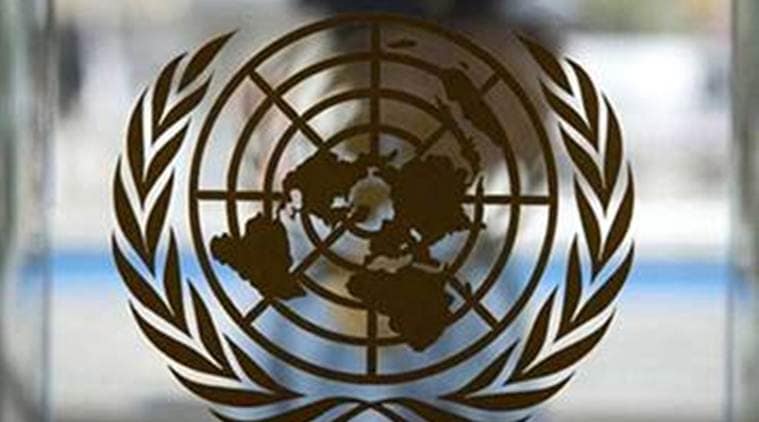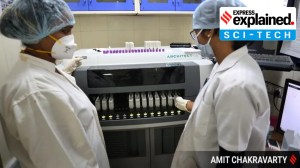- India
- International
Drug-resistant diseases to kill 10 mn each year by 2050: UN
The most glaring red flag in India came some years ago when doctors in Mumbai claimed to have encountered some tuberculosis cases that were totally drug-resistant (TDR).
 The expert group was convened at the request of world leaders after the first UN High-Level Meeting on Antimicrobial Resistance in 2016.
The expert group was convened at the request of world leaders after the first UN High-Level Meeting on Antimicrobial Resistance in 2016.
Painting a dire picture of a future with drug resistance, a UN report has warned that drug-resistant diseases could cause 10 million deaths each year by 2050 and damage to the economy could be as catastrophic as the 2008-2009 global financial crisis. According to the report, by 2030, antimicrobial resistance could force up to 24 million people into extreme poverty.
“The economic impact of uncontrolled antimicrobial resistance would also be catastrophic. As drug-resistant pathogens spread, health care expenditures would increase dramatically, and sustainable food and feed production – including global trade in food, feed and livestock – will increasingly be at risk,” said the UN ad hoc Interagency Coordinating Group (IACG) on Antimicrobial Resistance (AMR).
The expert group was convened at the request of world leaders after the first UN High-Level Meeting on Antimicrobial Resistance in 2016. “The World Bank estimates that by 2030 up to 24 million people could be forced into extreme poverty, mainly in low-income countries, and annual economic damage as a result of antimicrobial resistance could be comparable to the shocks experienced during the 2008-2009 global financial crisis – but with no end in sight,” stated the report.
In recent years, drug resistance has manifested itself in the emergence of superbugs that have enzymes such as the New Delhi metallo beta lactamase-I that makes them resistant to a large number of broad range antibiotics. And the aggressive and tenacious fungus Candida auris that required special cleaning of a room in Mount Sinai Hospital, where a person infected with the fungus had been admitted for 90 days. Mount Sinai, it was reported, had to rip out ceiling tiles in a bid to get rid of the Candida infestation in the room.
“Antimicrobial resistance is one of the greatest threats we face as a global community. This report reflects the depth and scope of the response needed to curb its rise and protect a century of progress in health. It rightly emphasises that there is no time to wait and I urge all stakeholders to act on its recommendations and work urgently to protect our people and planet and secure a sustainable future for all,” said Amina Mohammed, UN Deputy Secretary-General and Co-Chair of the IACG.

The most glaring red flag in India came some years ago when doctors in Mumbai claimed to have encountered some tuberculosis cases that were totally drug-resistant (TDR). Though that claim did not get official sanction from health agencies such as the WHO, it did lead to a new classification of XDR (extreme drug-resistant) TB.
The latest AMR report estimates that currently, at least 700,000 people die each year due to drug-resistant diseases, including 230,000 people who die from multidrug-resistant tuberculosis. India had the second highest total number of estimated MDR TB cases (99,000) in 2008, after China.
“Although antimicrobial resistance can develop naturally, misuse and overuse of antimicrobial agents in humans, terrestrial and aquatic animals, plants and crops are greatly accelerating its development and spread. In human health, poor medical prescribing practices and patient adherence to therapies, weak regulation and oversight including over-the-counter sales, and the proliferation of substandard and falsified antimicrobials are all contributing to the problem,” stated the report.
“The use of antimicrobials to promote growth and routinely prevent disease in healthy animals and crops without appropriate indication and in the absence of good agricultural practices to prevent infectious diseases on farms are further contributing to the development and spread of antimicrobial resistance.”
The UN warned that more and more common diseases, including respiratory tract infections, sexually transmitted infections and urinary tract infections are becoming untreatable and lifesaving medical procedures are becoming much riskier. “We are at a critical point in the fight to protect some of our most essential medicines. This report makes concrete recommendations that could save thousands of lives every year,” said Dr Tedros Adhanom Ghebreyesus, Director-General of the World Health Organisation and Co-Chair of the IACG.
May 07: Latest News
- 01
- 02
- 03
- 04
- 05





































